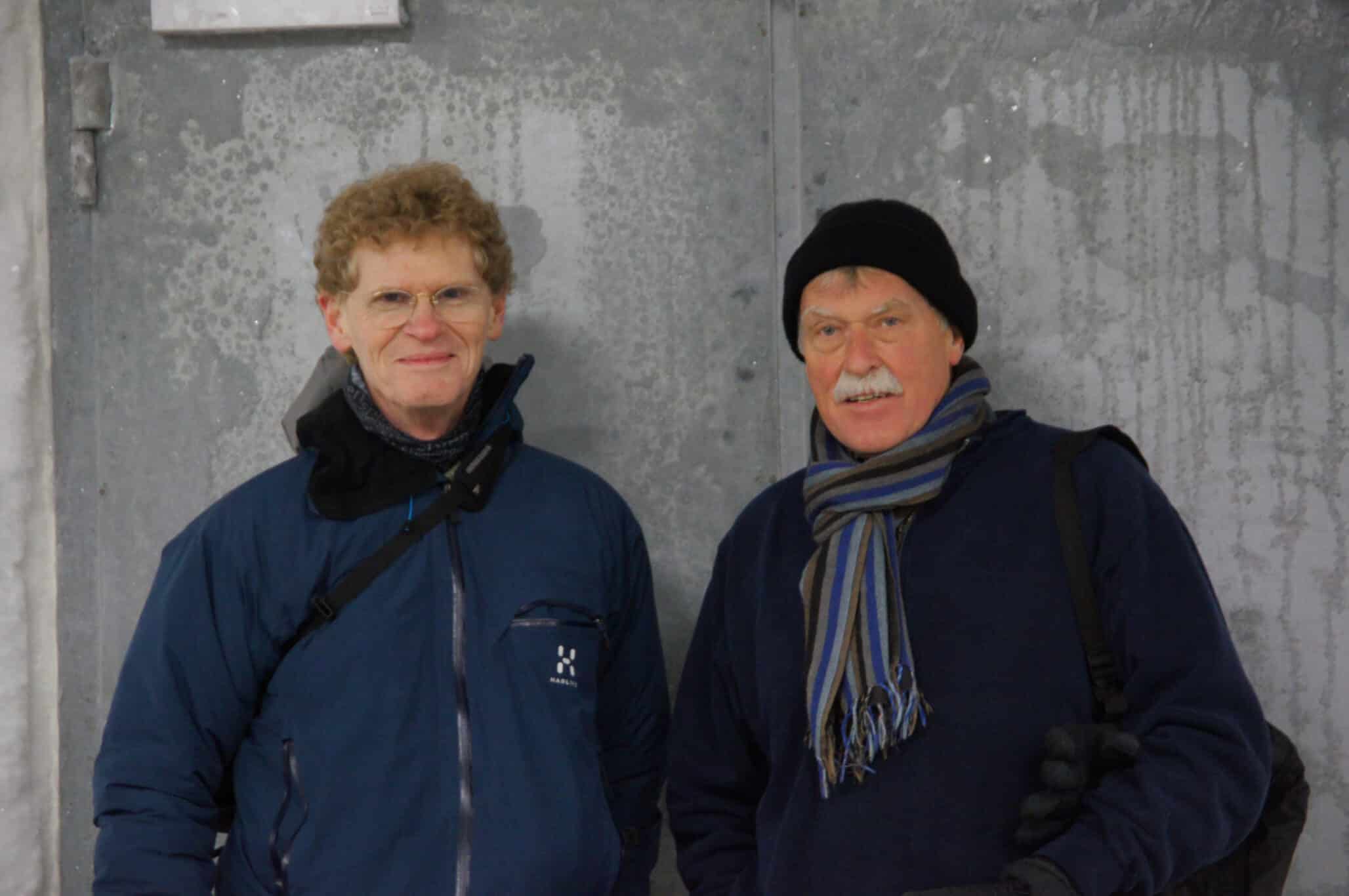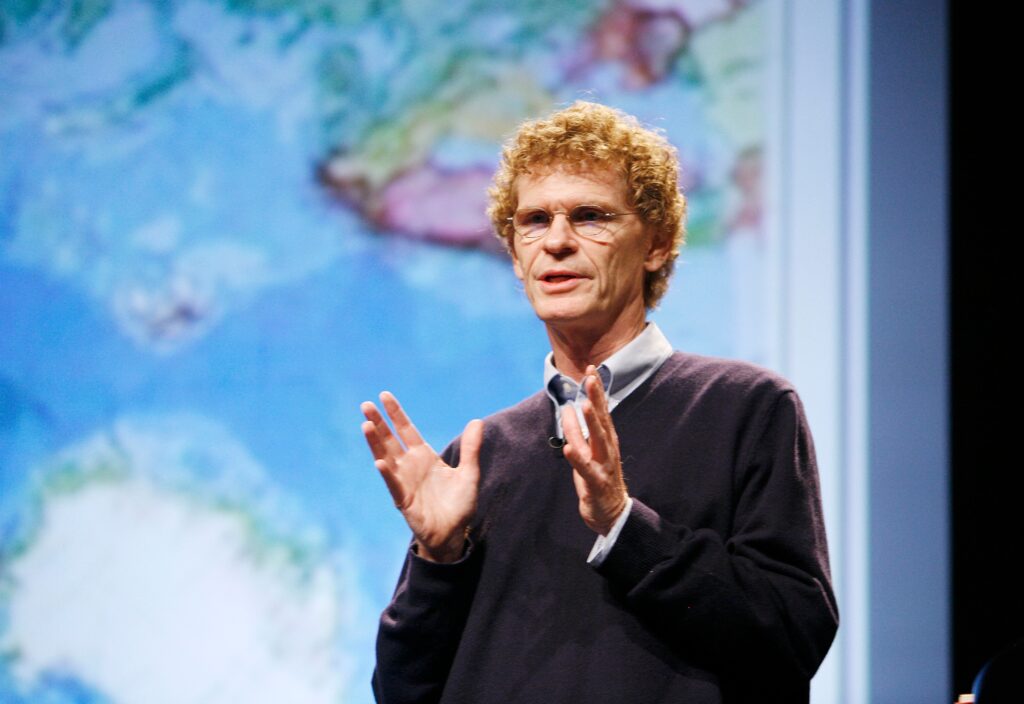World
Fathers of the Global Seed Vault Named 2024 World Food Prize Laureates – Seed World

Dr. Geoffrey Hawtin OBE from the U.K. and Canada, along with Dr. Cary Fowler from the U.S., have been jointly awarded the $500,000 prize for their efforts in preserving the world’s seed heritage.
Dr. Geoffrey Hawtin OBE, Founding Director and Executive Board member at the Global Crop Diversity Trust, and Dr. Cary Fowler, currently the U.S. Special Envoy for Global Food Security, were chosen by the World Food Prize Laureate Selection Committee for their longstanding contribution to seed conservation and crop biodiversity, according to a press release. They were recognized for their work in establishing a backup vault for crop seeds, crucial for global food security and have been named the 2024 World Food Prize Laureates.
These two men were instrumental in establishing the Svalbard Global Seed Vault, located in an underground facility in the Arctic Circle. Today, the vault safeguards 1.25 million seed samples from over 6,000 plant species. Often referred to as the “Doomsday Vault,” it was inaugurated in 2008 and serves as the final defense against threats to global food security, such as pandemics and climate crises.
The announcement of their award was made at a ceremony held in the U.S. Department of State, hosted and presided over by Secretary of State Antony Blinken. The names of the Laureates were revealed by Ambassador Terry Branstad, the Foundation’s President.

“The World Food Prize is bestowed to individuals for recognition of their achievements in the fight against hunger and food insecurity — one of the most pressing issues of our time,” said Secretary Blinken. “This year’s awardees, Dr. Geoffrey Hawtin and the State Department’s very own Dr. Cary Fowler, have made extraordinary contributions towards this cause. They have done critical work to advance global crop biodiversity and conserve over 6,000 varieties of crops and culturally important plants which has had a direct impact in addressing hunger around the world. This is the 20th year the Department of State has played a role in this announcement, and we are honored to be able to support the World Food Prize Foundation’s recognition of Dr. Fowler’s and Dr. Hawtin’s work.”
Fowler and Hawtin were also instrumental in the creation of the International Treaty on Plant Genetic Resources for Food and Agriculture, commonly known as the Plant Treaty. Adopted in 2001, this treaty was designed to facilitate the international movement of plant genetic resources. By codifying international agreements and mechanisms for the sharing of seeds, the treaty laid the foundations for the Svalbard seed vault.
The release notes that the vault was the brainchild of Fowler, who wrote to Norway’s Ministry of Foreign Affairs to ask them to consider establishing such a facility during his time at CGIAR, the world’s largest publicly funded agricultural research organization. He was later invited to chair a committee to assess the feasibility of such a project and served as the first Chair of the Vault’s International Advisory Council.
“Dr. Fowler’s many contributions to food security are truly global and entrepreneurial in scale, scope and design — changing peoples’ lives. One of his many legacies, the global seed vault at Svalbard in Norway, will benefit generations to come and his name will linger on,” said Anne Beathe Kristiansen Tvinnereim, Minister of International Development and Minister of Nordic Cooperation, Norway.
Hawtin was a member of the original study team that assessed the feasibility of the Svalbard Global Seed Vault and formulated its technical specifications. In 2004, he founded the Global Crop Diversity Trust, also known as the Crop Trust, which currently provides financial support for the vault in collaboration with the Norwegian Ministry of Agriculture and Food and the Nordic Genetic Resource Center, NordGen.


“Dr. Hawtin has helped shape the global work of the Crop Trust in many ways, and today, as a member of its Executive Board, he is at the forefront of shaping the future of this international organization and its role in the transformation of our agri-food systems,” said Dr. Stefan Schmitz, Executive Director, Global Crop Diversity Trust. “The Svalbard Global Seed Vault is not only the icon, but also the backbone of a growing global network of genebanks. Drs. Hawtin and Fowler have been instrumental in ensuring that all these genebanks, the treasure troves of plant genetic resources, have an ultimate backup in the Seed Vault on Svalbard, and have also paved the way for the diversity of crops in these genebanks to be utilized by researchers, plant breeders and farmers.”
Genebanks, such as the Svalbard Vault, are vital resources for crop scientists who work on breeding and developing improved varieties of the world’s most important food crops. These genebanks house materials containing beneficial traits that have the potential to enhance crops’ climate resilience, disease resistance, nutritional value, and tolerance to factors like increased salinity. This becomes increasingly valuable in the context of climate change.
“While creating a global seed vault might seem logical now, people told me at the time that the idea was crazy,” said Fowler, who began his career in 1978 as program director at the National Sharecroppers Fund in North Carolina. “We’ve since managed to collect and preserve the diversity of all of the major crops, including, for example, 150,000 types of wheat now in storage. But we need more collections, particularly of indigenous crops from regions such as Africa, because the diversity of these hardy crops is the raw material for plant breeding improvements. I’m hoping the World Food Prize will inspire investments in this kind of transformational R&D which is going to be necessary for food and nutrition security for 10 billion people by 2050.”
During the early stages of his career, Hawtin dedicated himself to collecting, preserving, and safeguarding legume species like chickpeas and faba beans. He traveled to countries such as Afghanistan, Ethiopia, Lebanon, Jordan, Syria, and Turkey, risking his life in the process. These collections were instrumental in establishing the genebank managed by the International Centre for Agricultural Research in the Dry Areas (ICARDA). When civil war erupted in 1975, he oversaw the relocation of plant genetic material six times, transporting them across mined roads and amidst weapons fire from Lebanon to Syria.


“The genetic diversity of crops and their relatives is as important to biodiversity as it is to food security, and much of it is as endangered as pandas and rhinos,” Hawtin, former director general of the International Plant Genetic Resources Institute (IPGRI), now part of the Alliance of Bioversity International and CIAT, said. “In receiving this honor, I would like to make a call to arms for urgent and sustained funding for the more than 1,700 genebanks around the world that are working tirelessly to make sure the material that farmers and plant breeders need is conserved and remains available. The work of crop genebanks underpins our ability to feed the world today and will do so long into the future.”
The first ever withdrawal from the Svalbard vault was in 2015 in the wake of the Syrian civil war, which resulted in the loss of ICARDA’s genebank. The withdrawals were used to repopulate collections held in Morocco and Lebanon and included seeds of legumes that had first been collected by Dr. Hawtin and his team decades before.












